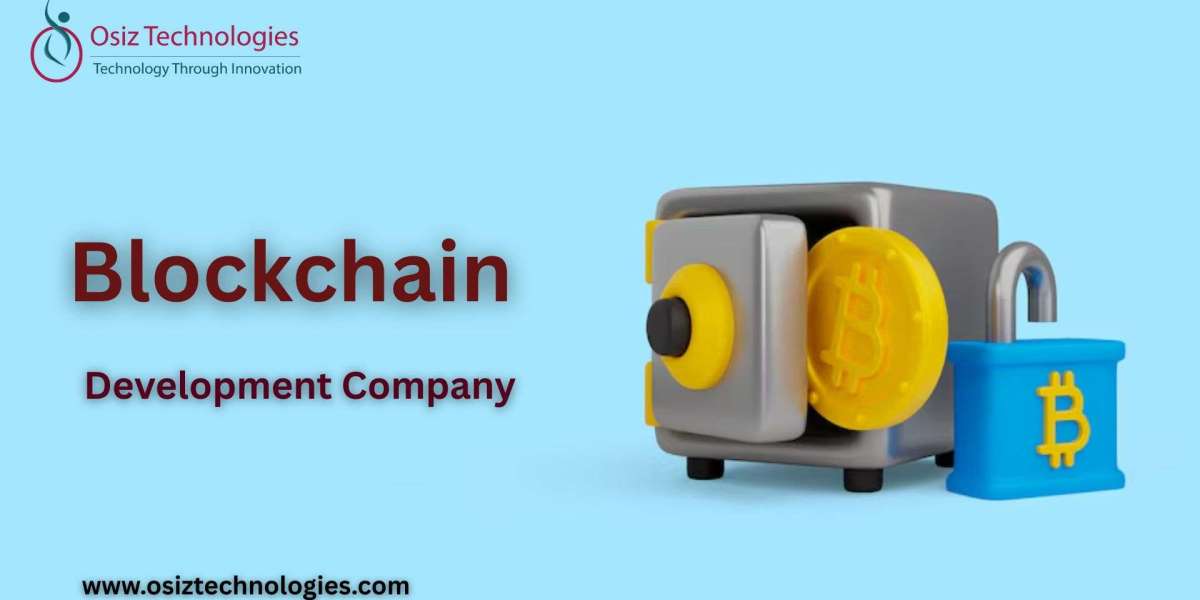The UAE is quickly becoming a global leader in blockchain adoption, transforming how digital interactions are secured. Programs like the Emirates Blockchain Strategy 2021 and platforms such as UAE Verify are setting new standards for digital security. In this blog, we explore how blockchain is transforming online interactions in the UAE and what it means for businesses and consumers alike.
UAE's Blockchain Vision: Transforming Digital Transactions
The Emirates Blockchain Strategy 2021 aims to move 50% of government transactions to the blockchain, improving efficiency and security. Similarly, the Dubai Blockchain Development Company seeks to make Dubai the first city fully powered by blockchain, encouraging innovation across various sectors. These strategies not only simplify processes but also position the UAE as a global leader in blockchain adoption. Companies like Osiz are playing a crucial role in developing blockchain solutions that align with these ambitious goals, delivering innovative and secure applications for businesses.
How Blockchain Improves Online Security
1. Decentralization
Unlike centralized systems, blockchain distributes data across a network of nodes. This decentralization eliminates single points of failure, making it significantly harder for cyberattacks to compromise the entire system.
2. Immutability
Once data is recorded on a blockchain, it cannot be altered or deleted from the network. This immutability ensures data integrity and prevents unauthorized interfering
3. Cryptographic Security
Blockchain has advanced cryptographic techniques to secure data. Each transaction is encrypted and linked to the previous one, forming a chain that is impossible to alter without detection.
4. Smart Contracts
Smart Contract Development involves creating self-executing contracts where the terms of the agreement are directly written into code. These contracts automatically enforce and execute terms, reducing the risk of human error and fraud.
5. Boosting Identity Management
Blockchain supports secure and decentralized identity management, allowing individuals to control their personal data. This reduces the risk of identity theft and unauthorized access.
Blockchain in E-Government: A Case Study
Dubai’s Department of Economic Development (DED) has managed blockchain solutions to improve processes like business licensing, making information accessible across government departments and reducing repeated documentation.
Through the “Dubai Pulse” platform, multiple governmental entities are connected to a shared blockchain-based register, allowing real‑time verification of trade licenses and other credentials.
Permissioned blockchain models (like using Hyper ledger Fabric) have been explored to ensure controlled access, strong governance, and data integrity in government-led services.
Some of the main benefits observed by Blockchain Development Company include increased transparency, reduced redundancy, faster service delivery, and improved trust among citizens and businesses.
Legal Framework: Protecting Blockchain Systems
Dubai’s Virtual Assets Regulatory Authority (VARA), established under Law No. 4 of 2022, government virtual asset activities and places licensing, compliance, auditing, and risk‑management requirements for blockchain‑based services.
Free zones like ADGM and DIFC have their own regulators with rules for token issuers, custodians, exchanges, and digital assets under frameworks that align with international standards.
Laws on AML (Anti‑Money Laundering) / CFT (Counter‑Financing of Terrorism) require blockchain firms to implement KYC (Know Your Customer), suspicious activity reporting, risk assessments, and record‑keeping. Non-compliance can lead to fines, license suspension, or criminal liability.
The UAE has federal laws against cybercrime, including penalties for hacking, unauthorized access, and other misuse of digital systems. These laws help protect blockchain systems from malicious attacks.
The Future of Blockchain in the UAE
In the UAE, blockchain is growing fast. There are now over 2,000 active companies working in the field, and more than 10,600 professionals in the industry. The government has pushed big plans like the Emirates Blockchain Strategy and the Dubai Blockchain Strategy to make online services safer and faster.
At Osiz, Blockchain Development Company, this means a lot of chances: to build systems that people trust, protect data, and help with digital identity, payments, asset tokenization, and more.
If you keep things strong, simple, and legal, using good encryption, smart contracts, and following rules, you can be part of setting a new standard of safety online.

![MuleSoft MCD-Level-1 Exam Practice Questions [Dumps 2024]](https://www.flexsocialbox.com/upload/photos/2024/06/EaFX2bYPSQmqugfPDHu7_25_d1859a4393ade083ca9a737476f690c3_image.jpg)

